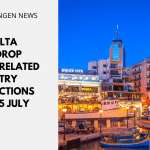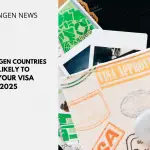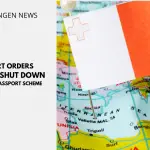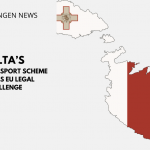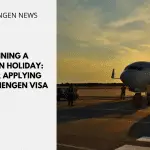How to Apply for a Malta Schengen Visa from the UK
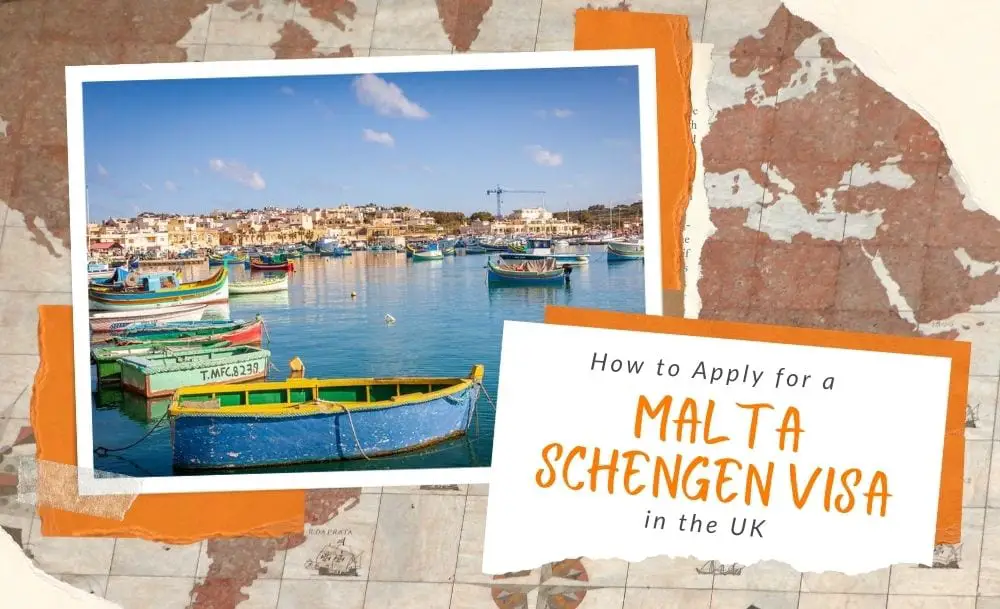 [su_spoiler title=”Contents In this Article” icon=”plus-circle”]
[su_spoiler title=”Contents In this Article” icon=”plus-circle”]
- Malta Entry Restrictions in Response to Coronavirus
- Who needs a visa to travel to Malta from the UK?
- Steps to Applying for a Maltese Schengen Visa from the UK
- Malta Schengen Visa Application Decision
- Malta Schengen Visa Extension
- Frequently Asked Questions About Malta Schengen Visas
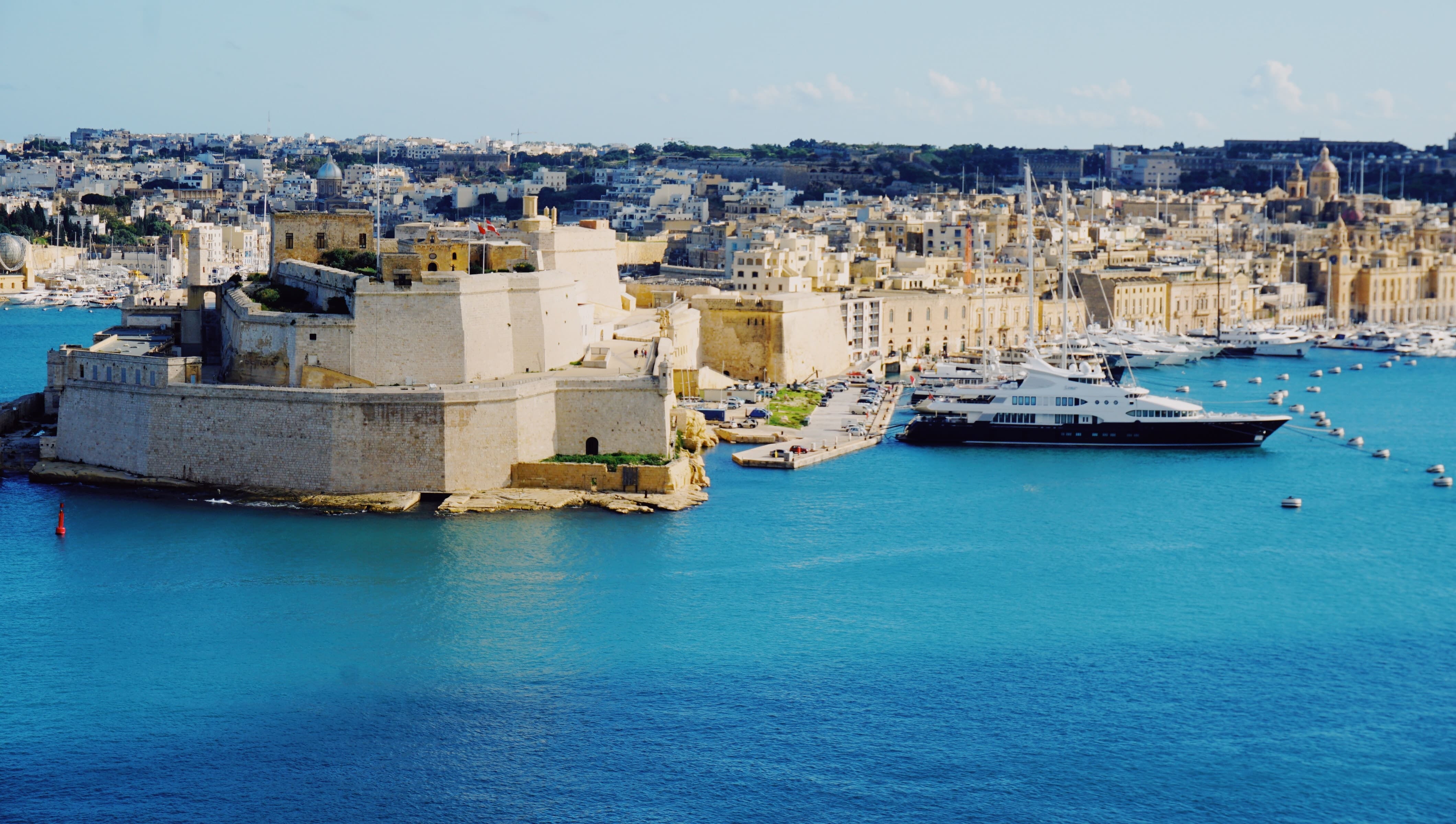
For such a small island, Malta is absolutely packed with fascinating treasures. Breathtaking ancient sites, charming cities and beautiful beaches are just the beginning. Malta has attracted adventurers for centuries, and modern visitors have many opportunities for creating lasting memories in this enchanted place. Whether tourists want to enjoy relaxing by the sea, sampling Mediterranean dishes or discovering a romantic piece of the past, the top tourist attractions in Malta certainly offer something for everyone.
The island country joined the European Union in 2004 and abolished its borders with the other Schengen member states in 2007. In 2017 alone, Malta received 37,881 Schengen visa applications from travellers around the world, visiting the country as their main destination. The number of visitors is much higher, taking into account the number of travellers that got a Schengen visa from other countries, and the number of countries the citizens of which can enter visa-free.
Malta Entry Restrictions in Response to Coronavirus
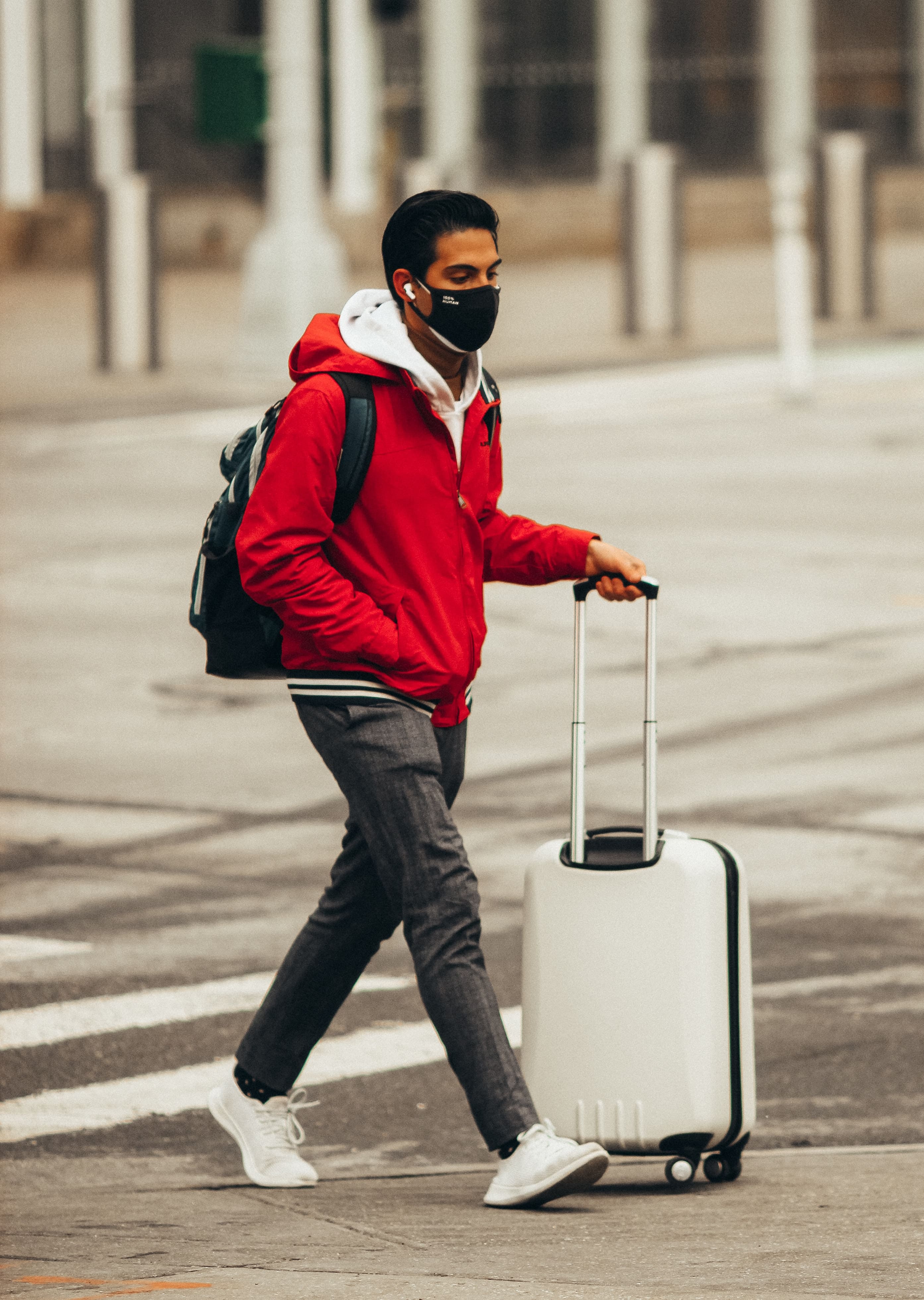
As of 15th July 2020, flights to and from some countries has been extended to include the UK on the Visit Malta website. All arriving passengers must have completed a paper copy of both a Public Health Travel Declaration and the Passenger Locator Form. These are available at the Malta Airport website, or you can also enquire with your airline.
Malta adopts its own national classification of risk areas, so travel restrictions are not based on the common “EU Traffic Lights” map, but on whether the traveller is coming from a country that is on Malta’s corridor countries list. Travellers coming from a corridor country can enter the country, while travellers from “Dark Red” or “Red” countries can enter as long as they have stayed in a “corridor country” for a minimum of 14 days. It is not possible to transit through Malta from airports outside the list of corridor countries.
Malta has already connected to the EU Gateway or the EU Digital COVID Certificate, so you can apply for one in order to be able to enter the country. Although the certificate provides a standardised recognition of the holder's COVID-19 vaccination status, COVID-19 recovery, or COVID-19 test result, each EU country is still responsible for its own entry requirements and rules. Requirements for entry to each EU country are not standardised, the measures and entry rules still depend on your place at your destination.
Malta's border restrictions change frequently, depending on the current circumstances, so it’s important to keep updated from trusted news sources, the UK government website, or the Maltese government website so that you are up to date on the latest news.
Who needs a visa to travel to Malta from the UK?
Travelling to Malta for EU/EEA Citizens
Malta is a Schengen country, which allows for free movement between 26 EU and EFTA states (Iceland, Norway, Liechtenstein, and Switzerland). A uniform Schengen visa issued by one of the Schengen states is valid for travel within the whole Schengen area.
Travelling to Malta Post-Brexit for UK Citizens
The rules for travelling or working in European countries changed on 1 January 2021:
- you can travel to countries in the Schengen area for up to 90 days in any 180-day period without a visa as a tourist, to visit family or friends, to attend business meetings, cultural or sports events, or for short-term studies or training
- if you are travelling to Malta and other Schengen countries without a visa, make sure your whole visit is within the 90-day limit. Visits to Schengen countries within the previous 180 days before you travel count towards your 90 days
- for long-stay visits, to work or study, for business or for other reasons, you will need to meet the Maltese government’s entry requirements.
- if you stay in Malta with a residence permit or long-stay visa, this does not count towards your 90-day visa-free limit
At Maltese border control, you may need to use separate lanes from EU, EEA and Swiss citizens when queueing. Your passport may be stamped on entry and exit. You may also need to:
- show a return or onward ticket
- show you have enough money for your stay
There are separate requirements for those who are residents of Malta. If you are resident in Malta, you should carry proof of residence as well as your valid passport when you travel. You should also check your passport’s validity when you travel and renew it if you don’t have enough time on it. Your passport must be:
- valid for at least 3 months after the day you plan to leave Malta or any other Schengen country
- less than 10 years old
Travelling to Malta Post-Brexit for Non-EU Nationals
Many non-EU nationals who reside in the UK are still required to get a Schengen visa to travel to Malta.
Citizens of the following countries residing in the UK and planning to visit Malta are required to get a Malta visa to be able to enter Malta.
[su_tabs][su_tab title=”A-C”][su_table]| Afghanistan | Algeria | Angola |
| Armenia | Azerbaijan | Bahrain |
| Bangladesh | Belarus | Belize |
| Benin | Bhutan | Bolivia |
| Botswana | Burkina Faso | Burma/Myanmar |
| Burundi | Cambodia | Cameroon |
| Cape Verde | Central African Republic | Chad |
| China | Comoros | Congo |
| Cote D'iviore | Cuba |
| Dem. Rep. Of Congo | Djibouti | Dominican Republic |
| Ecuador | Egypt | Equatorial Guinea |
| Eritrea | Ethiopia | Fiji |
| Gabon | Gambia | Ghana |
| Guinea | Guinea-Bissau | Guyana |
| Haiti | India | Indonesia |
| Iran | Iraq |
| Jamaica | Jordan | Kazakhstan |
| Kenya | Kosova | Kuwait |
| Kyrgyzstan | Laos | Lebanon |
| Lesotho | Liberia | Libya |
| Madagascar | Malawi | Maldives |
| Mali | Mauritania | Mongolia |
| Morocco | Mozambique | Namibia |
| Nepal | Niger | Nigeria |
| North Korea | Northern Mariana's | Oman |
| Pakistan | Papua New Guinea | Philippines |
| Qatar | Russia | Rwanda |
| Sao Tome And Principe | Saudi Arabia | Senegal |
| Sierra Leone | Somalia | South Africa |
| Sri Lanka | Sudan | Suriname |
| Swaziland | Syria | Tajikistan |
| Tanzania | Thailand | Timor-Leste |
| Togo | Tonga | Tunisia |
| Turkey | Turkmenistan | Uganda |
| Uzbekistan |
| Vietnam | Yemen | Zambia |
| Zimbabwe |
The main requirement if you want to apply from the UK is that you must have a UK residence permit valid for at least another three more months beyond the date you plan to leave Malta or the Schengen Area.
Before starting a visa application, or getting a flight to Malta, make sure to check whether you need a visa to Malta or not.
If you have a 3-month UK visa you can extend it for three more months in order to be eligible to apply for a Malta Schengen visa from within the UK. You must apply for an extension before your visa expires and while you’re still in the UK. If you are not a resident in the United Kingdom you should apply at the Malta Embassy/Consulate/VAC in your home country of residence.
Note: You can stay in the UK until the decision about the extension is taken, but only if you have applied within the visa period.
In case you plan on staying in Malta for more than 90 days you must apply for a residency permit, not a Malta Schengen visa.
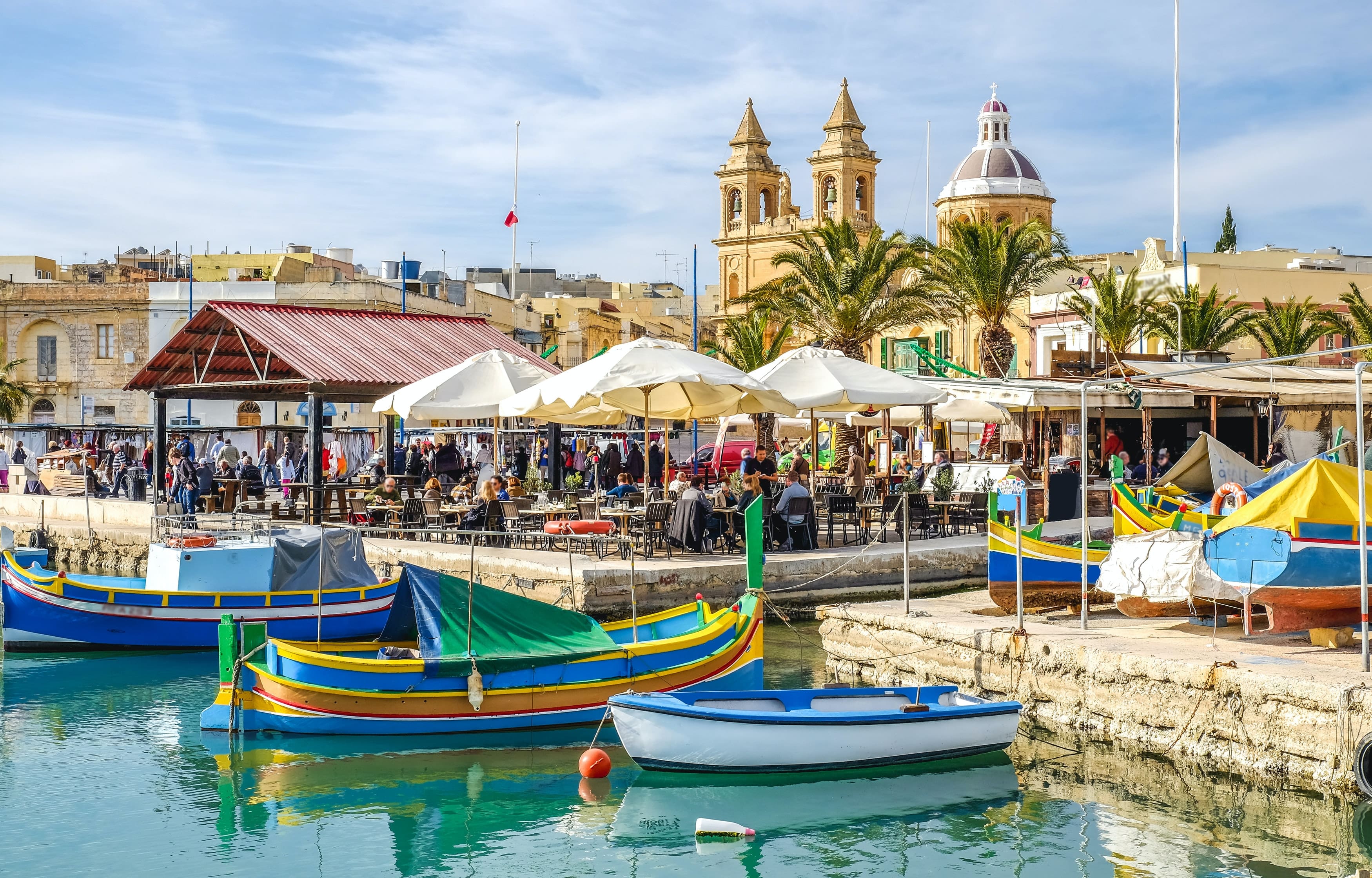
Steps to Applying for a Maltese Schengen Visa from the UK
Step 1: Know your visa type and validity
There are 2 types of visas that you can apply for. The type of Schengen visa you need will depend on the duration of your trip and your reason for travelling to Malta:
- Short-stay (Schengen) Visa – valid for up to 90 days (in a 180-day period) for the purposes of tourism, business, visiting family/friends, conference, EEA/EU national family member
- Residence and work permits (Long stays) – you should apply for this kind of visa if you want to live in Malta for more than 90 days for employment, family reunification, study, research etc.
You will then behttps://immigrationandmigration.com/90-180-day-rule-schengen-calculator-free-schengen-zone-stay-calculator/ issued either a single entry, double-entry, or multiple-entry visa for up to 5 years based on the information you provide in your visa application.
It is important to choose the correct Schengen visa type to apply for depending on your trip so that you have the best chance of having your application approved. Find out more about the different types of Schengen visas in our blog post: Schengen Visa Types – All You Should Know When Applying for a Schengen Visa.

Step 2: Identify where to make the application and book an appointment
Note that you cannot apply for a visa directly at the Malta Embassy in the UK. Instead, you can apply for a Schengen Visa for Malta from the UK through the VFS Centers in London, Manchester and Edinburgh (for tourism and business visas only).
To apply for a visa through one of the VFS Centres you will have to make an appointment, prior to showing up at one of their centres. Sometimes, especially during peak season when they are receiving a lot of applications, you will have to wait for a while for your appointment.
You should apply for a Malta visa at the appropriate Malta Embassy, Consulate or Malta visa application centre in the UK if:
- Malta is the only Schengen country you plan on visiting
- Malta is your main destination (the country you will be staying the longest in)
- Malta is the first Schengen country you are visiting (when spending an equal amount of days in The Malta and another Schengen country)
Maltese VFS Visa Application Centres in the UK
Visa applications for UK residents wishing to visit Malta can be filed at the VFS Visa Application Centers in UK, located in London, Edinburgh and Manchester. All applications will be assessed by the Malta High Commission, London.
Every Malta visa application must be submitted in person and by appointment only, as explained above. Please note that they do not accept walk-in applications, therefore, an appointment is obligatory.
The VACs are open every workday starting at 08:30 to 17:30.
London: Malta Visa Application Centre, 66 Wilson Street, EC2A 2BT London
Manchester: Malta Visa Application Centre, 50 Devonshire Street North, M12 6JH Manchester
Edinburgh: Malta Visa Application Centre, Rennie's Isle, Leith, EH6 6QA Edinburgh
Email: [email protected]
Step 3: Complete your application form
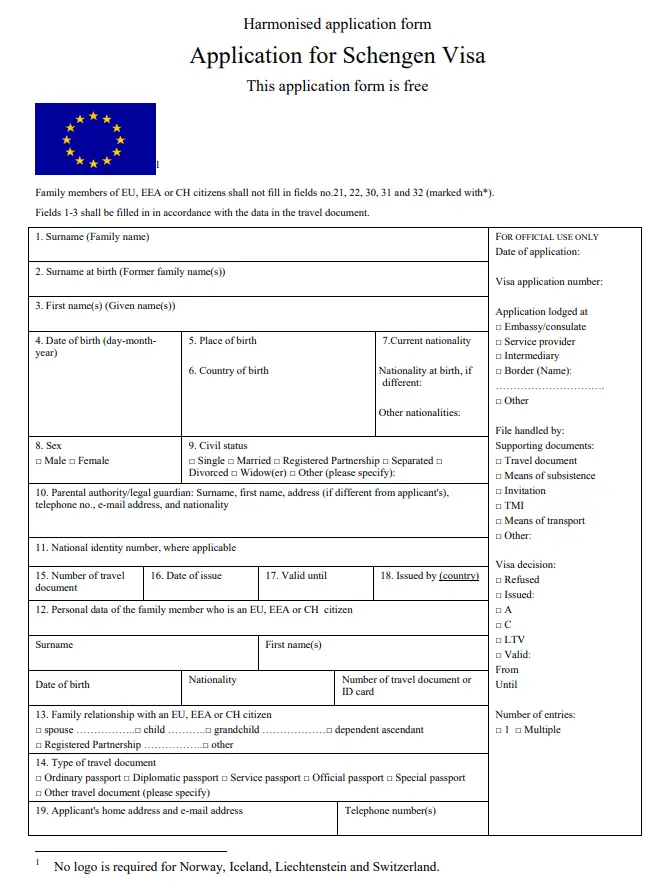
The Schengen Visa application form contains questions about you including:
- Name and surname
- Date and place of birth
- Nationality
- Sex and marital status
- National Identity number
- Passport number
- Home address and email
- Purpose of trip
- Question regarding previous trips to Schengen, if any
- Intended date of arrival in Schengen area you are visiting, and the intended period of stay
- Cost of traveling and remaining in Schengen area you are visiting, who will cover them, etc.
Make sure your answers are correct and that they comply with the information in the rest of the documents. Complete the form, print it twice, and sign both copies at the end.
Find out more about how to complete a Schengen visa application form in this blog post.
Schengen Visa Purpose of Travel
On the visa application form, you will be prompted to indicate the purpose of your travel to the Schengen territory:
- Tourism – for applicants, who intend to travel purely for tourist purposes, i.e. sightseeing, leisure, and experiencing their culture, architecture, foods, and much more, need to indicate this on the application form.
- Business – If you intend to travel for business purposes, i.e. visiting a business/company for meetings, recruitments, training, or any other work-related activities, then you need to indicate Business the purpose of your travels. Every Business visa application has to be confirmed by an invitation letter from a business/company based in Malta, if not, you will be required to apply as a Tourist.
- Airport Transit – Certain nationalities have to apply for an airport transit visa in order to be allowed to make a stopover at an airport in a Schengen Area, without entering the Schengen Country. You need to indicate airport transit as the purpose of travel on your application form.
- Transit – This is similar to the above-mentioned purpose of travel, popular among sea travellers that need to stop over at the seaport of one of the member states.
- Visiting Family or Friends – If you need to visit and stay with your family or friends that legally reside in the Schengen Area, you can then indicate this as your purpose of travel. You’ll, however, be required to provide a letter of invitation among other documents.
- Study – Students wishing to attend any type of educational institution in the Schengen area need to indicate this on their application. They can either choose to apply for a short term 3-month Schengen study visa or National Visa (category “D”) if they plan on being in the country longer.
- Medical – Indicate this as your purpose of travel if you are travelling to any of the member states of the Schengen territory to seek medical treatment. This visa will allow you to get the medical care you need at any medical institution for a period of 90 days within a 180-day period.
- Official Visit – Tick this as your purpose of travel if you are travelling to the Schengen region in an official capacity.
- Cultural, Sports, and Film Crews – this visa is for people wishing to travel to a Schengen member country for the purpose of attending a cultural, sports, or religious event or they are part of a film crew. The applicant should be part of the event, i.e. a performer at a concert, or a writer presenting their book at a book event, or an athlete participating in a sports event and not only as a mere audience.
- Other – If the purpose of your travel does not fall under any of the mentioned categories, you’ll have to choose the “other” option on the application form. You will, however, be required to specify the purpose of your visit in a few words.
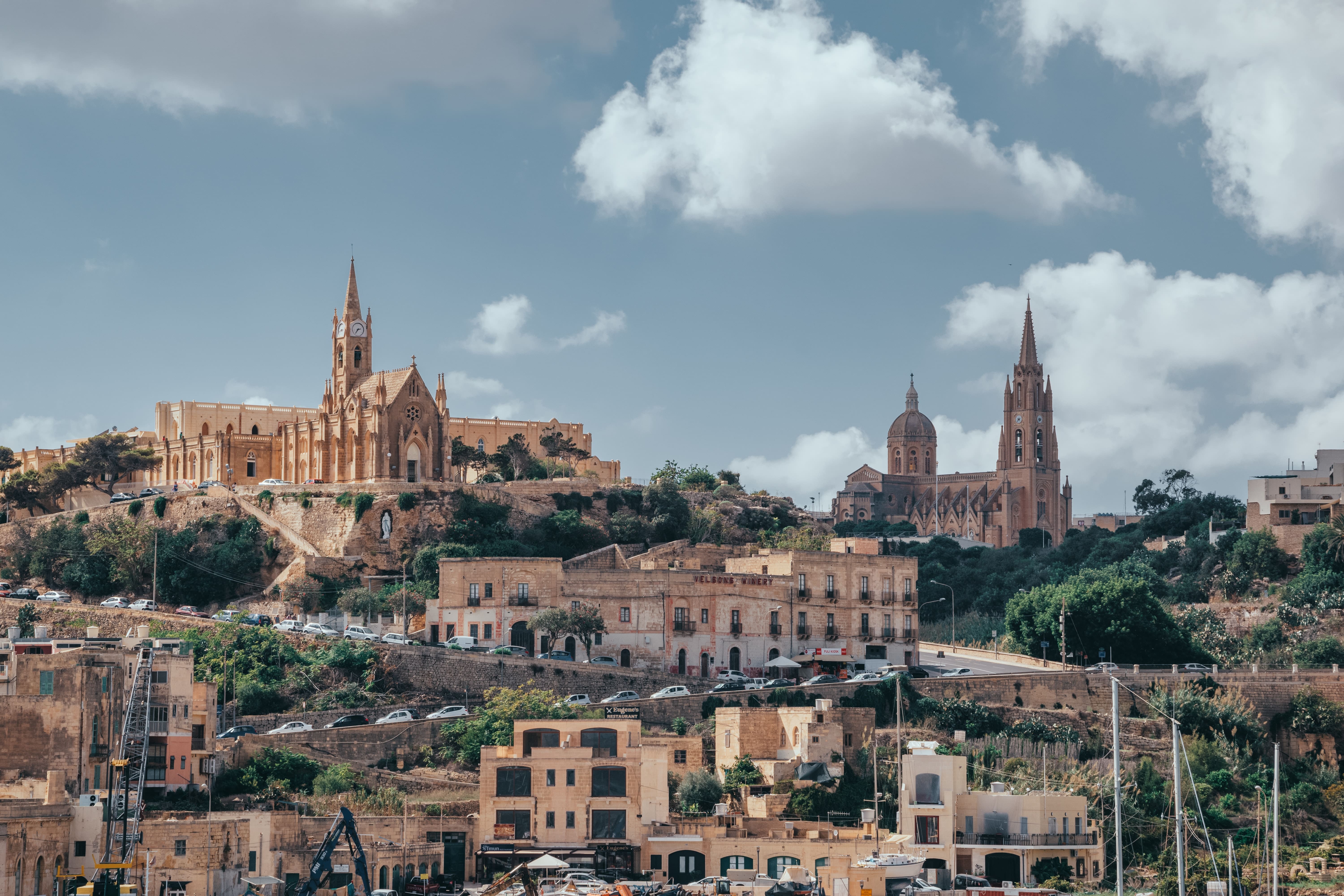
Step 4: Prepare your documents
The following list of documents are required in order to obtain a visa to Malta in the UK:
- A valid passport or travel document. Make sure:
- Your passport has been issued within the previous 10 years,
- Your passport has 2 full blank pages, one for the visa stamp and an additional spare page,
- Your passport will be valid for at least three (3) months after the date you exit the Schengen Area.
- A valid UK residence permit or another form of Identity Card.
- The UK residency permit must be endorsed in the actual passport (or on a new biometric ID card)
- The UK residence permit must be valid for at least another 3 more months beyond the date you plan to leave Malta.
- One Maltese Schengen Visa application form filled out completely and signed by the applicant.
- One recently taken passport format photo with a blank background and where all your facial features are clear, which must be glued to the application form. Applications with stapled photographs will be rejected.
- A cover letter explaining the purpose of the visit to Malta.
- Biometric data (applies only if you haven’t provided biometric data within the last 59 months):
- Fingerprints
- A copy of the passport bio page where the photo is included.
Note: Children under the age of 12 are exempted from providing fingerprints.
- Proof of travel arrangements:
- Round trip flight/travel reservations or other proof of intended transport
- Complete itinerary of your visit to Malta (if several Schengen States will be visited or if the trip covers several Schengen States and non-Schengen countries).
- Travel Insurance stating that you are covered in case of a medical emergency and repatriation not just in Malta but in the whole Schengen zone (minimum coverage of € 30,000).
- Holders of diplomatic passports and family members of EU/EEA citizens are exempted from providing proof of travel medical insurance
- Proof of accommodation in Malta:
- Evidence of a hotel booking or rental agreement, or
- Invitation from your Maltese host (family member, friend) with a copy of their passport
- Proof of financial subsistence:
- A recent statement of UK bank account for the last three months that shows funds of at least 48€ per day spent in Malta,
- Traveller’s cheques, or
- Proof of sponsorship
- Certificate of criminal record of the home country showing that candidate has no open crime case involvement
- Proof of paid Maltavisa fee
Note: Photocopies of the original documents should also be submitted and documents should not be more than one month old.
The documents listed above are documents required in all cases, regardless of the purpose of your visit to Malta.
Additional documents required based on your employment status
For employees:
- Employment contract
- Current bank statement of the latest 6 months
- Leave permission from the employer
- Income Tax Return (ITR) form or Certificate of Income Tax deducted at the source of salary
For the self-employed:
- A copy of your business license
- Company bank statement of the latest 6 months
- Income Tax Return (ITR)
For foreign students in the UK:
- Proof of enrollment
- No-objection certificate from school or university
For retirees:
- Pension statement of the latest 6 months

If unemployed and married to an EU citizen:
- A recent (less than 3 months old) Confirmation of Employment letter from their spouse’s employer stating the position held within the company as well as the starting date,
- Spouse’s valid passport
- An officially translated marriage certificate. The translation must be in English or Malta and must be certified as a true copy by the Embassy of the country where the marriage took place or by the Legalization Bureau of the Foreign Office in UK
Requirements for children under the age of 18:
Parents or an adult guardian are required to accompany their underage children at the application centre at the Embassy of Malta in London. Also, minors who are granted a Malta visa are not allowed to travel to Malta by themselves. They should be accompanied by an adult during their stay in Malta.
Apart from the general documentation required, accompanying should be other additional documents depending on the purpose of your Malta Visa application.
Additional documents required for the most frequent purposes of Malta Visa Application
Malta Tourist/Visitor Visa:
- Invitation letter from your family or friends in the Malta with the address and phone number – if applicable
- Bank statement of the last 6 months
- Passport copies
Malta Visa for Business Purposes:
- Invitation letter from the Malta company you will be visiting and their detailed address accompanied with the dates of your visit
- A certificate from your employer stating/allowing your business travel
- If there were previous trade relations between the two companies, proof of such events must be provided
- Business bank statement of the latest 6 months
- Memorandum and Article of Association in original certified copy (registered with joint stock companies) Trade License (first issued and present renewal), Proprietorship/Partnership documents
- Regarding the applicant’s expenses during stay in the Schengen zone, either the employer or the partner company must state coverage of expenses on the letter or invitation.
Malta Visa for Medical Purposes:
- A local medical report
- A medical attestation from the hospital or doctor in Malta, confirming the date of your appointment as well as your medical situation
- Payment receipt of medical fees

Malta Visa for Cultural, Sports, Film Crew or Religious Purposes:
- Invitation letter from the above-mentioned authorities with details upon the nature of events or activities – purpose of visit, expense coverage
- Names of the applicants (crew members)
- Duration of stay
- Travel itinerary
Malta Visa for Members of Official Delegations:
- The official invitation copy
- Identity of applicant
- Purpose of journey (negotiations, meetings, event by intergovernmental organizations, consultations)
- Duration of stay
- Place of accommodation
Malta Visa for Study, Training, Research, or other types of internship purposes:
- An enrollment certificate allowing attendance of courses
- Certificate of completion or courses attended
- Financial sustenance
Malta Airport Transit Visa:
- Visa or other type of entry permit in the transit country
- Copy of your valid visa for your final destination
Required documents for visa application for underage children
- Birth certificate
- Malta Schengen Visa application form signed by both parents.
- Family court order, in cases where only one parent has full custody over the child.
- Certified copies of ID/passport of both parents
- A notarized parental authorization to travel to Malta, signed by both parents/guardians, if the minor will be travelling alone with another person.
All documents provided should be legalized and be in of the following languages:
- English
- Maltese

Step 5: Attend your appointment
The visa interview is a meeting between you and the consular officer/interviewer. During this interview, the consular officer will ask you several questions about you and your intended trip. You will also be submitting the required documents throughout the meeting, to the interviewer.
The visa interview is a meeting between you and the consular officer/interviewer. During this interview, the consular officer will ask you several questions about you and your intended trip. You will also be submitting the required documents throughout the meeting, to the interviewer.
Find out more about the Schengen visa interview here: Schengen Visa Interview Questions and Answers and How to Prepare for it
Visa Fees for UK Residents
The fee must be paid upon submitting the Malta visa application. After you complete this payment, you will receive a receipt, which shows that payment has been made, which must be offered amongst other documents of the application dossier. You will have to pay a Maltese visa fee in order for your application to be processed.
Since Malta is a Schengen state, visa fees are the same as any other Schengen visa. Find out about the Schengen visa fee in our blog post: Schengen Visa Fees – How Much Does a Schengen Visa Cost?
Step 6: Receive your visa
Maltese Visa Application Processing Time in UK
You can apply for a Malta Schengen Visa 6 months before your planned trip. Depending on the nationality of the applicant, the processing time may take at least 15 days from the day of application. In some cases when required documents are missing from the application, this process may take longer.
Therefore, to avoid unwanted complications, the Malta Consulate General in London advises that you provide all required documents and submit your application at least 20 workdays (4 weeks) before the day you leave for Malta.
Malta Schengen Visa Application Decision
If your application for a Malta Schengen visa is approved, it will be stamped on your passport and you can visit Malta and any country in the Schengen area for the duration of your visa. Find out how to read your Schengen visa sticker in our blog post: How to Read Your Schengen Visa Sticker.
If your application is rejected, it would have been for a specific reason.
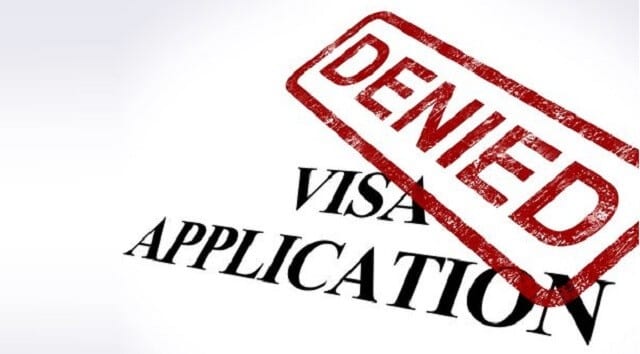
What are common Malta Schengen visa rejection reasons?
- Marriage certificate missing – if you are applying for a visa for family reasons, you may have to prove family ties. This is why you must provide a marriage certificate
- You applied for the wrong visa – it is your responsibility to apply for the correct visa depending on how long you are going to Malta for and your reason for travelling there
- It is not clear that you plan to return to the UK – it must be clear that you intend to return to the UK before the visa expires. If the visa staff have doubts about this, your visa will be rejected
- The purpose of your trip cannot be established – the reason why you are planning to go to Malta must be made clear. You can do this by providing specific documents like a full itinerary, work contract or invitation letter, etc.
What if my Malta Schengen visa is rejected?
If you receive a negative answer in your Malta Schengen visa application, this does not mean you cannot ever travel to Malta. You have two options.
- File an appeal for Malta Schengen visa rejection if you believe that the decision to deny you a visa is unjust. You should have a strong basis for your complaint. You can appeal this decision by writing an appeal letter for a Malta Schengen visa rejection.
- Reapply by correcting the mistakes you did in your previous application. Or improve your situation to comply with the eligibility criteria for a Malta Schengen Visa.
Malta Schengen Visa Extension
A person visiting Malta on a Schengen Visa can extend their visa if they have legitimate reasons. This could be for either of the following reasons:
- Late entry
- Humanitarian reasons
- Force majeure, and
- Important personal reasons
The decisions to approve a Schengen visa extension request are handled case by case.
Malta Schengen Visa Extension Application Process
The overall process of extending your Maltese Schengen visa will involve:
- Determining whether you have a justified reason to request an extension
- Submitting all the necessary documents. These include a valid passport that has the Schengen Visa used to get in the Schengen area stamped in it, one passport-sized photo, proof of financial subsistence, Schengen Visa Insurance that covers the extension duration, and all the documents that justify your reason for an extension
- Paying visa fees where applicable
- Attending a visa interview if necessary
- Waiting for the approval
You need to make sure to read your Schengen visa sticker carefully so that you do not overstay your visa and avoid the penalties that come with doing so, which can include anything from a fine, deportation from the Schengen zone, and even being outright banned from the area.
Read more about the step by step process involved in extending your Schengen visa in our blog post: Overstaying in the Schengen Zone? Here’s How to Extend Your Schengen Visa.

Frequently Asked Questions About Malta Schengen Visas
How long does it take to get a Schengen visa for Malta?
You can usually get your Maltese Schengen visa within 15 days, if everything in your application is in order. It might take longer if there is a problem with your application or the immigration officer needs more time to look over your application.
You can also get a premium Schengen visa to get your Malta Schengen visa within 24 to 48 hours, which includes personalised advice from an expert immigration adviser, with IaM’s premium Schengen visa service.
Can I travel to Malta visa-free with my BRP?
If you are a national of a third country without a visa-free scheme with the EU, you will need to get a visa to travel to Malta or any other Schengen country. You should also remember to bring your biometric card with you for your return to the UK.
Can I travel to Malta visa-free if I have a British spouse?
Since the UK is no longer part of the EU, you will need a visa to travel to the Schengen Area unless you hold a UK Residence Permit that states that you are a family member of an EU/EEA National if you do not hold a nationality or citizenship for a country with a visa-free scheme with the EU.
Is a Malta Schengen visa easy to get?
Yes, it is easy to apply for a Malta Schengen visa. You can apply for the visa online or use immigration services like IAM to make the process even simpler for you and have a higher chance of your application being accepted.
Can I work in Malta with a Schengen visa?
No, the Schengen visa is a permit for tourism, business, visiting family and friends, or other purposes. You will need to apply for a work visa if you plan to work in Malta.
How much bank balance is required for a Malta Schengen visa?
It depends on how long you want to stay in the country. Malta requires at least 48€ per day.
What is the best currency to take to Malta?
Malta’s currency is the Euro so you can bring some with you on your trip if you are planning on bringing cash. Cash is still widely used in Malta, in fact, more often compared to any other country within the EU, so it would be a good idea to bring some with you on your trip.
Are you ready to apply for your Malta Schengen visa? Is there anything we missed or anything you need clarification on? Comment below.
IaM can help with your visa application to the United States, the UK & other countries
If you need help with a US visa, a UK Visa, or visa to Europe, including help with appointment booking obligations, IaM can help. For more information and advice on US immigration, UK immigration law and US visa applications or if you need any help or assistance please, reach out to your Visa Coordinator at IaM.
- How to Apply for a Luxembourg Schengen Visa from the UK - 14 March 2025
- How to Apply for a Liechtenstein Schengen Visa from the UK - 13 March 2025
- Austria Schengen Visa Requirements for UK Residents - 11 March 2025

